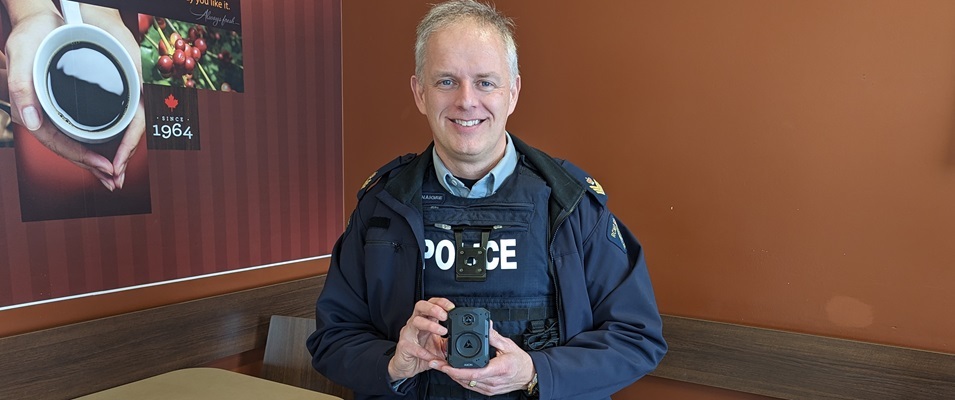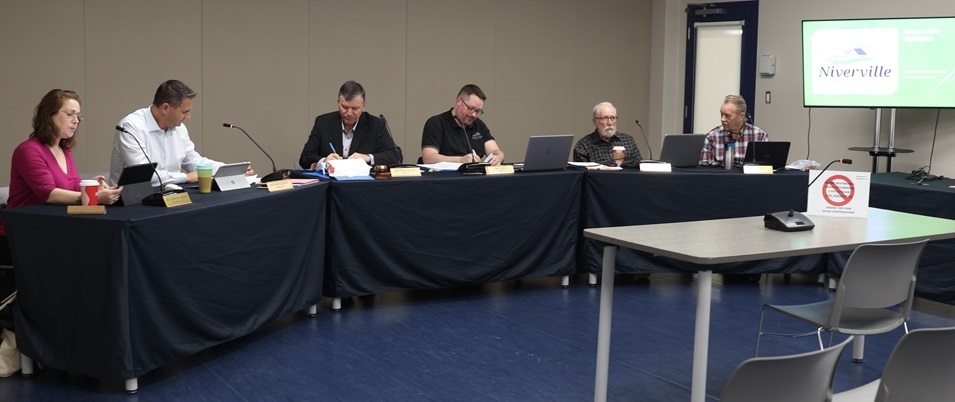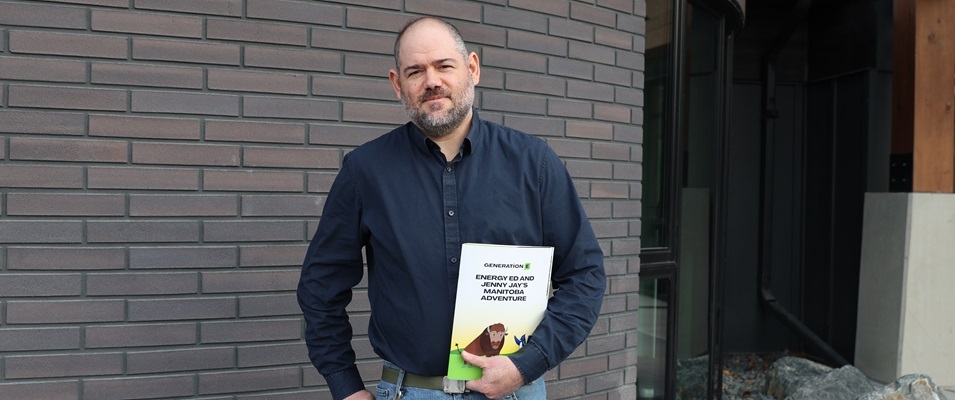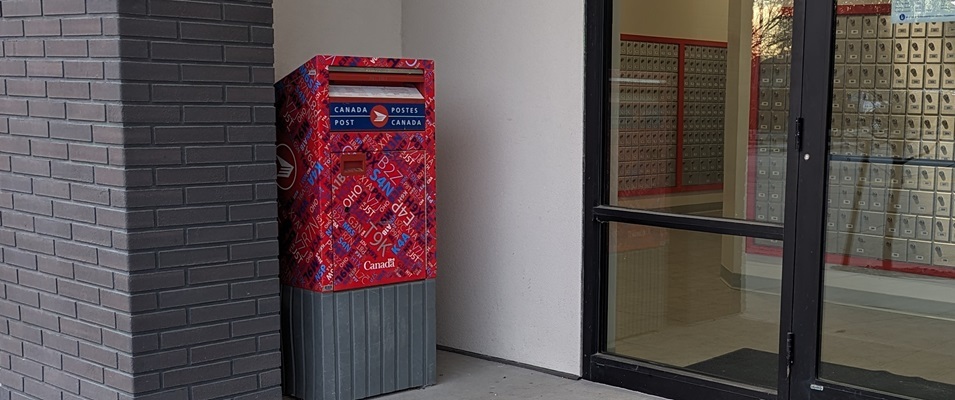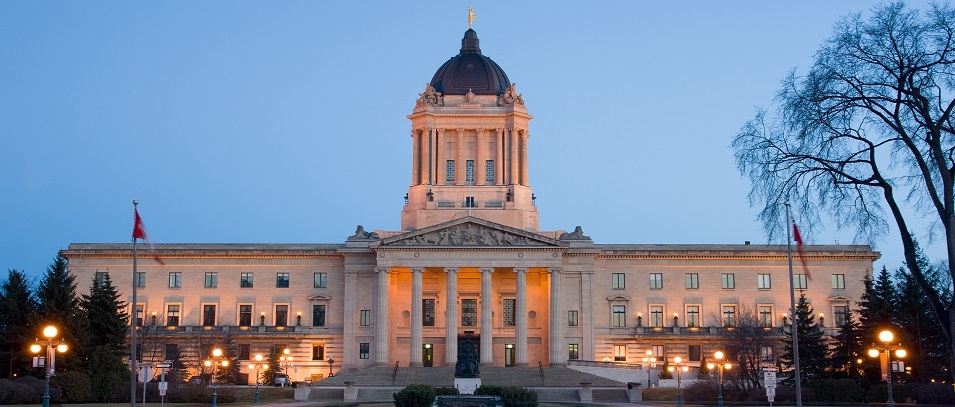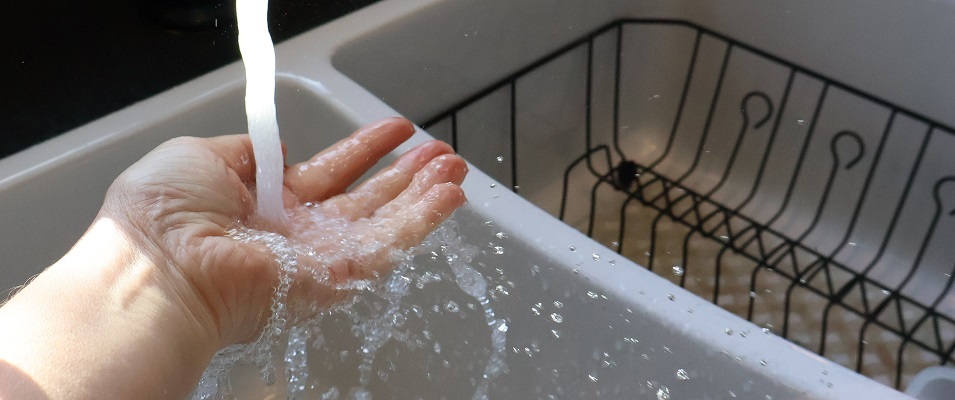
In recent weeks, approximately 700 private well owners in Niverville have been asked to give serious consideration to the idea of hooking up to the community’s municipal water system.
With plenty of indication that the town’s growth patterns will continue on their upward trajectory, and the expectation that private wells will eventually become obsolete, Niverville’s council has been proactively working towards creating water infrastructure to keep up with eventual demand.
In 2023, a new $5 million water treatment plant went online and now services a good portion of the community. At the same time, a third well is being investigated close to New Bothwell. This will add redundancy to the other two wells from which the treatment plant draws.
With the promise of government grants that could halve the cost of water main line installation throughout the non-serviced portion of town, council has decided it’s time to ask well owners the big question: are you ready to hook up to municipal water?
Following an informational open house held by council in early March, residents have until April 15 to complete a survey provided on the town’s website. The survey results, council says, will be the basis by which they determine buy-in. If at least 80 percent of well owners say yes to hookup, and provided funding is granted, council will move forward with water main line installation.
Sweeping buy-in across all the older neighbourhoods isn’t required. If even a segment of the community shows interest in hookup for their particular block, and 80 percent of the residents on that block agree, water hookup could proceed incrementally.
Some Residents Say No
For many well owners, it’s a hard sell. After all, there are no quarterly water fees to pay and no one restricts their water consumption in dry summers. They can top up a swimming pool and water their lawn all summer long without incurring massive bills.
As a matter of fact, apart from occasional well maintenance and repair costs, this natural resource can feel like it’s basically free.
Pushback from such residents could already be seen at council’s recent open house on the subject. About 300 residents showed up, many voicing resistance to the idea of hooking up to municipal water.
One well owner created an informal poll on Facebook and received 144 responses, of which 97 percent voted against making the switch. This may not be representative of all well owners, but it’s nonetheless somewhat telling.
Another resident has taken it upon herself to create a petition which she hopes will convince council to proceed only if there’s 100 percent buy-in, or at least only charge residents for main line installation if they voted in favour of it.
Jake Hiebert is the owner of Trison Repair. He’s been in business for 46 years, primarily contracting in Niverville. For most of that time, Hiebert has become known for his expertise servicing local wells and replacing well pumps when they break down.
Hiebert’s home on the north side of town and business on the south side of town both derive their water from private wells. Hiebert says he won’t be connecting to municipal water, even if a grant is procured.
Despite the fact that many of Niverville’s private wells are more than a half-century old, Hiebert says he’s seen very few instances where they had to be decommissioned.
More often than not, he says, well failure happens because of the pump inside the well and he’s replaced a countless number of them over the years. Occasionally these pumps seize up and are impossible to remove from the well. Even so, Hiebert has developed a way to install a new pump without removing the old one.
It may be old school thinking, he says, but it’s saved people a whole lot of money and it works.
But on occasion a break can happen in the well pipe casing, in which case the only option is to dig a new well and start over.
According to Hiebert, around $10,000 to $15,000 should cover the cost of a new well. In most cases, because the well is shared between multiple households, that cost is split between all of the well users.
Hiebert also feels confident that there is long-term stability in the water table. In all his years of experience, he says that water has always been found at the 25- to 26-foot depth.
“The water is not going down, and that’s our measuring point. So I would say we could drill many more wells,” says Hiebert. “If it all of a sudden dropped to 30 feet, now [there’s a risk we might be] running out of water but that’s not the case.”
As for water quality, Hiebert says there hasn’t been a lot of evidence to indicate that the local water isn’t perfectly safe for consumption without chemical treatment. Of course, that’s not to say tat it can’t become unsafe. For this reason, Hiebert recommends regular water testing.
He puts his own wells through a shock chlorination treatment every other year or so to kill off any potential bacteria in the system. He says this service would cost the average homeowner around $200.
“We have everything in place right now that we can take care of our own water,” Hiebert says. “Why are we going to pay somebody else when we have our water for a reasonable cost?”
Arguments in Favour of Municipal Water
The Citizen reached out to Jeff Bell, a hydrogeological engineer with Friesen Drillers. Bell and his company were strategic in assisting council in finding another water source near New Bothwell in 2016.
At the time, the sand and saline content in the aquifer beneath Niverville was causing issues for the water treatment plant due to the sheer volume of water being processed through it. It was determined that a fresher, more viable source lay to the community’s east.
“It might be just fine to pump lower volumes [as with residential wells], but when we are talking of pumping larger volumes for a town, we need to go where the aquifer offers the freshest water supply,” Bell said at the time.
While water volume may not be the issue faced by well owners here, other problems lurk beneath the earth’s surface that most well owners may be oblivious to.
Firstly, most of Niverville’s wells and well service lines are made with galvanized steel, as opposed to the PVC pipe and brass connections used today. Prior to the 1990s, Bells says, there were few standards controlling well construction.
“You notice a lot of cars from the 1970s that rusted out very quickly,” Bell says. “It was the quality of the steel that they built it with. And that was also the case with well casings from the 60s, 70s, and 80s.”
While galvanization works relatively well as an anti-corrosion coating on steel, when the ends of the pipes are shouldered and threaded in order to attach a connection, the galvanization treatment is removed. This makes each hookup, or connection, highly susceptible to corrosion, and thus it’s a conduit for bacteria to get into the well water.
Considering there are numerous hookups in order to service numerous households, and connections every 20 feet on each of the water lines, there are a considerable number of potential breach points in just one well system.
The top eight to ten feet of soil in any community also has a fairly active bacteria content, partly due to the septic lines running in the same ground space. This increases the exposure rate for water in these lines.
The second problem with private well systems, Bell says, is that they typically aren’t serviced and maintained by the homeowners to a very high standard.
Water samples should be lab-tested annually, he says, and checked for contaminants beyond just bacteria. Regular maintenance should also include sending a camera down the lines on occasion to inspect the integrity of the casing and hookups.
Such an inspection should especially occur when the well undergoes repairs and, at the same time, the hookups should be replaced with new ones. This is a costly procedure, though, and most contractors don’t even bother to recommend it.
When bacteria is detected through a water sample test, shock chlorination is typical.
“When you have a bacterial issue in a water well, they tell you to shock chlorinate the well,” Bell says. “But the bacteria got into the system somehow. Shock chlorination is just a way to deal with the water that’s currently in the well, not with what could eventually leak into the well. So when you get a positive bacterial hit, you need to actually mechanically determine, through visual inspection, where the breach in the system is so you know how the bacteria got into the system. Very few people do that.”
Applying shock chlorination without repairing the breach, he says, is akin to getting a diagnosis of heart failure and having your medical doctor send you home with some Advil for the pain. It’s a Band-Aid solution to a much bigger problem.
“Now when you put a large number of [poorly maintained wells] in an area, you’re definitely creating a situation of high risk,” continues Bell. “If one connection to a water well starts to leak and you end up with bacteria, you can get it into the aquifer and you start affecting wells [all around] because you have water wells conceivably every 50 feet.”
This, he says, is why the province and municipal governments would love to steer all communities, large or small, toward municipal water treatment systems. With the high likelihood of a bacterial breach and the potentially rapid spread of the bacteria from one well to the next, it could become a municipal nightmare to try and determine the source of the breach and how to remediate such a problem before too many people get sick.
As for other Manitoba towns of Niverville’s size dealing with similar private well concerns, Bell says that Oakbank and Lorette are two that come to mind.
The Cost of Hooking Up
The only cost that well owners are being asked to consider immediately is that of the water main line installation. The main lines are the water grids that would pass by everyone’s front yard, winding their way through the community and ending up at the water treatment plant.
Of course, for residents to receive water from the main line they will need to hook up to it at some point through the installation of a water service line that runs from the main to their home. Town council says that homeowners can install the service line any time after the main line is installed, whether it be immediately or many years later.
Based on information released by the town office, the cost of the main line will be calculated by multiplying the frontage feet of a property by $101.23 per foot of frontage. Using the example of an average sized lot with a 77-foot frontage, this comes to a total cost of almost $7,795.
This cost includes parts and the labour to install the mainline, with a 50 percent discount applied based on available grant monies.
Property owners are welcome to pay the fee in full upfront or take advantage of the town’s finance options, drawing it out over 10 years with interest added.
It should be noted that all costs provided here are subject to change, depending on fluctuating contractor and part costs when the job is finally contracted.
Well owners who choose to decline main line installation at this time should be aware that provincial grant monies may not be available down the road, in effect doubling the cost of the installation later on.
As to service line installation costs, the town is leaving each property owner to their own devices to get that done if they’d like to hook up to the main. Well owners will be required to hire contractors that are approved by the town office.
The Citizen reached out to Kas Wiens of Southwood Ventures Inc, a directional drilling company based out of Grunthal, which has done a lot of similar work in Niverville.
According to Wiens, rough costs to install a service line from the main to the home with the inclusion of a curbstop and some basic yard restoration would come to between $10,500 and $17,500.
Some determining factors, he says, would be yard depth, what side of the street the water main is on, where the mechanical room is located in the house, and where the current well water enters the house.
Next comes the installation of the water meter and check valve inside the home. This service is done by the town. Costs for the parts and installation come to around $660 plus taxes.
During the process of infrastructure installation, the town sends out an inspector who may make two or three visits to the property. Each inspection costs $50 plus taxes.
As well, the town charges a water treatment access fee to hook up to the municipal water supply. This comes to $2,000 for a single-family home.
Finally, a $2,000 deposit is required by the town, which is refundable to the homeowner if town property has been restored to an acceptable manner upon the job’s completion.
If you live on Fifth Avenue or own property along Niverville’s Main Street, the province may require that a sleeve be installed on your water connection at your own cost. The town was unable to provide information on what that cost would be.
After a property is hooked up, it would be remiss not to discuss the quarterly costs one would pay for municipal water going forward.
Each quarterly water bill includes a basic water service fee of $7.37. After that, the costs are calculated based on consumption. The minimum water charge of $33.54 covers the first 3,000 gallons of water used. After that, $11.18 is charged for every 1,000 gallons over.
On average, for a four-person household, the water bill might range anywhere between $65 and $180 every three months, depending on consumption.
Why Municipal Taxes Can’t Pay for Water Infrastructure
According to Eric King, CAO for the Town of Niverville, the Municipal Act, via the Public Utilities Board, prevents municipalities from using tax dollars to pay for anything related to water or sewer utilities. Neither is the town authorized to provide municipal grant funding toward a utility.
These projects must be financially carried by the water or sewer rate payers. So the new $5 million water treatment plant is being funded solely by those who receive treated water.
That is why well owners must be solely responsible to cover the costs of water infrastructure servicing their properties.
“So the province has granted $3 million to the project. Now it is up to the affected property [owners] to cover the other 50 percent,” says King. “The grant [being offered] is technically to the public utility—water, in this case—and even more specific to the project, so we cannot use it elsewhere.”
In the end, King reminds local well owners that council is not attempting to put any undue pressure on them. They are here simply to supply the facts so well owners can make an informed decision on their own.
“If the public wishes to have council decline the grant from the province and maintain status quo, then that is the direction council would proceed with,” King says. “The town has provided the public with the pros and cons… that they believe best represents their interests, both now and into the future.”






